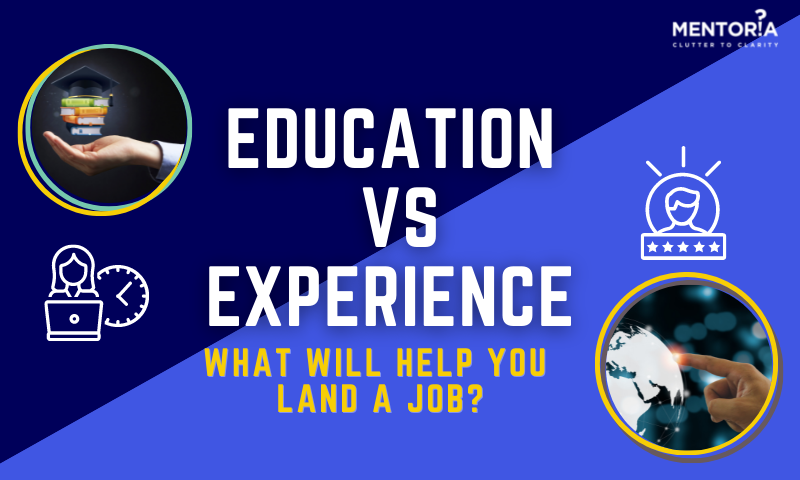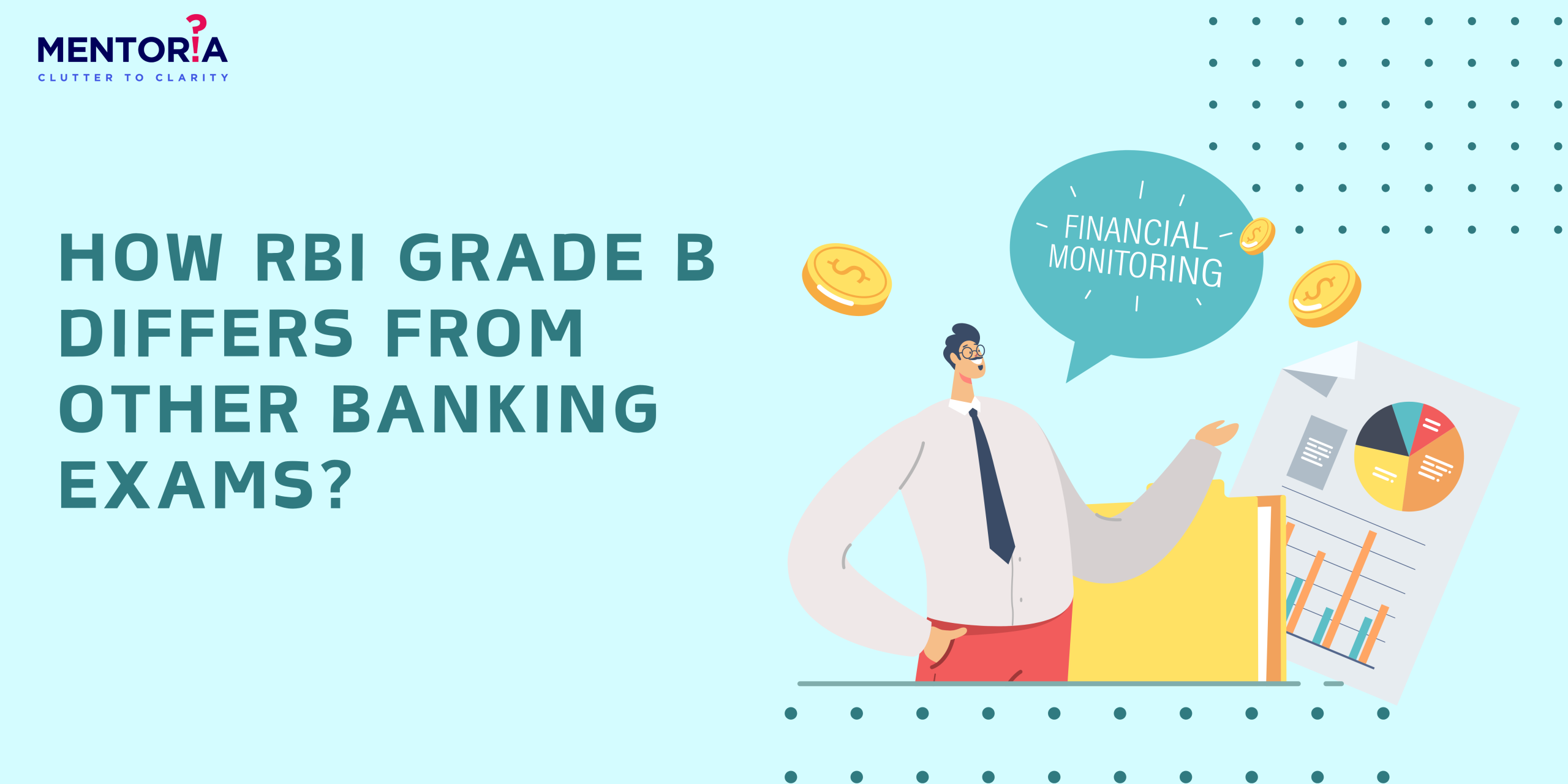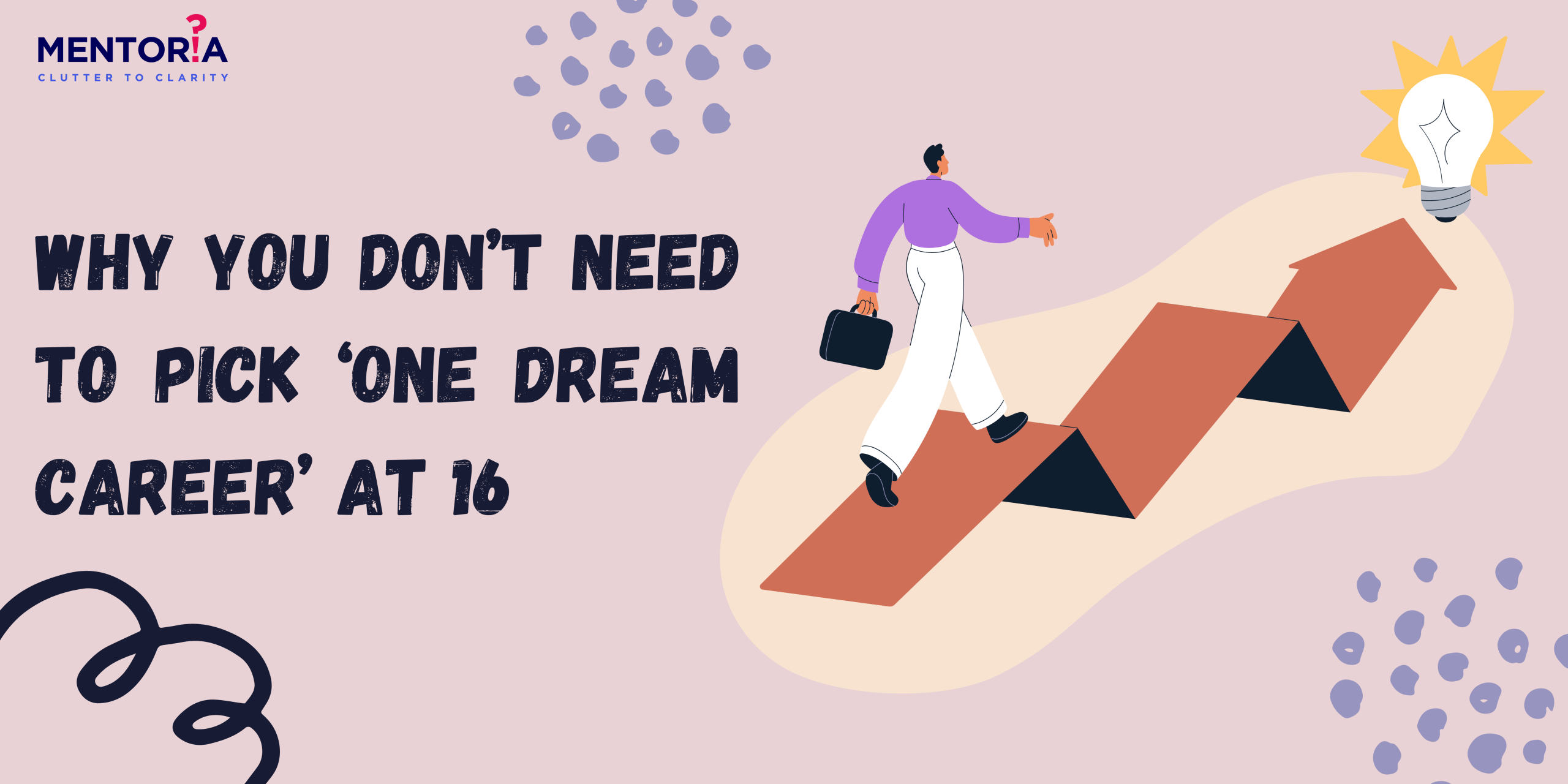Education Vs Experience – What Will Help You Land a Job?

Picture this- You are out of college with a degree. You did great, scored well, had fun, made some great friends. Now you’re all set to begin a new chapter in your life. Some of your friends might still want to study further, while some would’ve started looking for jobs already. What’s the ideal next move for you? Should you start working before you choose to study further? Or would an additional degree improve your chances of getting a good job with an attractive salary? Education or experience – which one should you focus on?
This has been a debate for too long: Does having a higher degree help you get a job, or does prior work experience matter more? Beyond just landing a job, will your degree or experience help you more in terms of maintaining employment, developing your career, and earning a promotion? Hold on, we can help you here!
Let’s Talk About Education First
We are sure that you have already met those people who say that a degree doesn’t matter. Remember the friend who told you that Mark Zuckerberg, Richard Branson, Bill Gates, and other well-known billionaires did not receive a college education in order to build their incredible wealth and widespread success? Well, even if you have great ideas, will they be entertained without you having a degree to prove your credibility? Without meeting the minimum educational criteria of most employers, it can be challenging to get your ideas acknowledged or get a foot in the door of big companies. If you were the employer, would you hire someone without a degree?
First of all, the degree on your resume will land you an interview and get you started with your journey to get a job. Pursuing a standard four-year degree can get expensive in the modern world because a traditional education system involves much more than just understanding concepts but it sure is worth it.
Students who pursue formal education gain access to a wide range of life skills, including social and interpersonal communication. It should be simpler for you to find a solid job and earn more money over the course of your life if you have that diploma or degree, which shows that you have attained a level of ability and depth of subject knowledge.
A professor will tell you that a degree is essential. It’s a requirement for numerous professions, including those of doctors, lawyers, and engineers, and you’ll almost always see it listed as “preferred” on job advertisements. It shows that you have the ability to soak up information and you are more ‘job-ready’. Academic certification is required even in industries including accountancy, medicine, education, engineering, architecture. You are opening yourself up to more salary and more opportunities.
However, with changing times, some companies don’t require a degree in order to hire you if you can prove your ability to do the job. Recently, a large number of top businesses, including Google, Netflix, Tesla, IBM, Hilton, and Apple, have modified their stance on the need for degrees. Employers could consider completing a relevant course to be similar to having real work experience. However, education alone cannot land you a job, right?
Where Will Experience Get You?
Let’s consider this- you just have work experience in your industry but no education, where does that leave you?
The idea of “learning by doing” is still highly regarded in society. Experimentation and experience have resulted in the development of many successful careers. You know how Mike Ross, from ‘Suits’ got hired without even having a degree, solely based on his expertise. Well, how often does that happen? You need to have extraordinary talent, be highly motivated, and put up a lot of work for your career to succeed solely on the basis of this.
The experience might provide you a basic understanding of some ideas and concepts, but it won’t walk you through the crucial soft skills required in a professional setting. You will need training or certain talents to get employed so that you can survive in the quickly changing environment. Instead of earning a college degree, you can start working right away by gaining experience. Job categories like sales positions or trading positions could favour applicants with appropriate expertise.
Your entire body of professional work and the projects you have finished provide you an unique advantage over the competition. People who are original and creative are appreciated more highly than others in the world we live in. As a result, while others follow the script, having experience in your sector allows you to develop your own method of problem-solving. With experience, you have better practical skills and if you’ve worked in a field for a while, it shows your dedication and assures employers that you won’t quit after a year.
So, Which One Will Get You The Job?
Both, education and experience have its pros and cons but is there an end to this debate? Well, the answer to this conundrum is to view education and experience as complementary to one another rather than as competitors. Truth is, it’s not as simple as education or experience. Greedy employers want both and why shouldn’t they?
A lot of factors work together when you want to land a job. If the field of your interest doesn’t require further education but just a basic degree and more experience then that is what you should do. Without a degree, there are numerous well-paying and rapidly expanding opportunities available, including those in product management, computer programming, and other tech-related fields.
The two journeys function differently for each person depending on their aptitude, personality, and surroundings, there is no one correct way.It is just like the difference between theory and application, one cannot exist without the other.
You will need a particular level of education to start any entry-level job, whether it be high school graduation or having a bachelor’s degree; it will vary. Therefore, you cannot pursue a career goal unless you have received a basic education. Only then can you decide whether your industry demands you to obtain a better higher qualification or learn on the job.
Recent grads need a degree to show that they have the skills required for entry-level employment in their profession. However, participation in internships or other work-related or extracurricular activities distinguishes applicants from other applicants by showing initiative and maturity. Because of this, it’s crucial to integrate experiential learning opportunities into academic programmes so that you may apply what you learn in the classroom to address problems in the real world.
Education helps you develop the necessary frame of mind and gives you a lot of knowledge about your field, and helps with the technical parts that you could apply later while working. Experience teaches you about the reality of working life on a daily basis and, more significantly, it gives you the soft skills necessary to succeed in any workplace. Combining both might be the best option! Also, keep in mind that you can always retrain for a different career or return to school later in life.
You Get To Decide!
The real answer to this debate is that you get to choose what works for you. Your actions have long-term repercussions, so if you are willing to be guided by a mentor or educational counsellor then Mentoria is your place! We at Mentoria are here to help you on your path to excellence if you’re unsure about your career possibilities. Be it for changing careers or beginning a new one, take our assessment today and find out your areas of interest, potential careers, the pathway and colleges for the same, and more!







